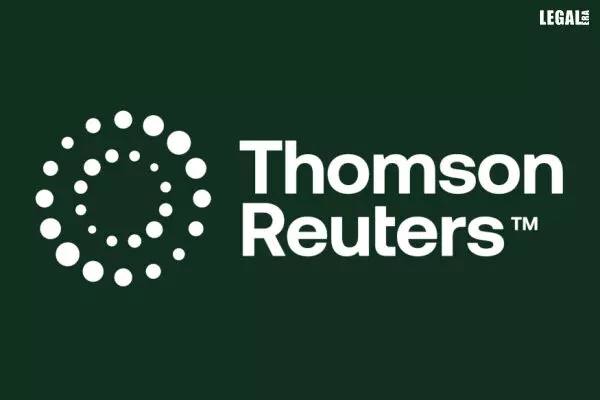- Home
- News
- Articles+
- Aerospace
- Artificial Intelligence
- Agriculture
- Alternate Dispute Resolution
- Arbitration & Mediation
- Banking and Finance
- Bankruptcy
- Book Review
- Bribery & Corruption
- Commercial Litigation
- Competition Law
- Conference Reports
- Consumer Products
- Contract
- Corporate Governance
- Corporate Law
- Covid-19
- Cryptocurrency
- Cybersecurity
- Data Protection
- Defence
- Digital Economy
- E-commerce
- Employment Law
- Energy and Natural Resources
- Entertainment and Sports Law
- Environmental Law
- Environmental, Social, and Governance
- Foreign Direct Investment
- Food and Beverage
- Gaming
- Health Care
- IBC Diaries
- In Focus
- Inclusion & Diversity
- Insurance Law
- Intellectual Property
- International Law
- IP & Tech Era
- Know the Law
- Labour Laws
- Law & Policy and Regulation
- Litigation
- Litigation Funding
- Manufacturing
- Mergers & Acquisitions
- NFTs
- Privacy
- Private Equity
- Project Finance
- Real Estate
- Risk and Compliance
- Student Corner
- Take On Board
- Tax
- Technology Media and Telecom
- Tributes
- Viewpoint
- Zoom In
- Law Firms
- In-House
- Rankings
- E-Magazine
- Legal Era TV
- Events
- Middle East
- Africa
- News
- Articles
- Aerospace
- Artificial Intelligence
- Agriculture
- Alternate Dispute Resolution
- Arbitration & Mediation
- Banking and Finance
- Bankruptcy
- Book Review
- Bribery & Corruption
- Commercial Litigation
- Competition Law
- Conference Reports
- Consumer Products
- Contract
- Corporate Governance
- Corporate Law
- Covid-19
- Cryptocurrency
- Cybersecurity
- Data Protection
- Defence
- Digital Economy
- E-commerce
- Employment Law
- Energy and Natural Resources
- Entertainment and Sports Law
- Environmental Law
- Environmental, Social, and Governance
- Foreign Direct Investment
- Food and Beverage
- Gaming
- Health Care
- IBC Diaries
- In Focus
- Inclusion & Diversity
- Insurance Law
- Intellectual Property
- International Law
- IP & Tech Era
- Know the Law
- Labour Laws
- Law & Policy and Regulation
- Litigation
- Litigation Funding
- Manufacturing
- Mergers & Acquisitions
- NFTs
- Privacy
- Private Equity
- Project Finance
- Real Estate
- Risk and Compliance
- Student Corner
- Take On Board
- Tax
- Technology Media and Telecom
- Tributes
- Viewpoint
- Zoom In
- Law Firms
- In-House
- Rankings
- E-Magazine
- Legal Era TV
- Events
- Middle East
- Africa
Thomson Reuters Wins AI Copyright 'Fair Use' Ruling Against Ross Intelligence

Thomson Reuters Wins AI Copyright 'Fair Use' Ruling Against Ross Intelligence
The decision marks the first in related litigations
The US District Court for the District of Delaware has ruled that Ross Intelligence, a defunct legal research firm, violated the law by copying Thomson Reuters' content to create an artificial intelligence (Al)-based legal platform.
Thomson Reuters is the parent company of Reuters News.
Circuit Judge Stephanos Bibas held that a former competitor of Thomson Reuters was not permitted by copyright law to duplicate the IT company's content.
Appreciating the decision, a Thomson Reuters spokesperson remarked, "We are pleased that the court granted summary judgment in our favor and concluded that Westlaw's editorial content, created and maintained by our attorney editors, is protected by copyright and cannot be used without our consent. The copying of our content was not 'fair use.’”
The ‘fair use’ principle allows the unauthorized use of copyright-protected works under certain circumstances.
The theory represents a key defense for tech companies including OpenAI, Microsoft and Meta Platforms in a series of copyright cases by authors, record labels, visual artists and others over the use of their material to train Al systems.
Tech companies argue that generative AI systems make ‘fair use’ of copyrighted material by studying it and creating new content. However, copyright owners complain that companies use their work to generate competing content, threatening their livelihoods.
Judge Bibas had reconsidered his previous decision that determining ‘fair use’ should be left to a jury at a trial. He stated, "I studied the case material more closely and realized that my prior summary-judgment ruling had not gone far enough.”



